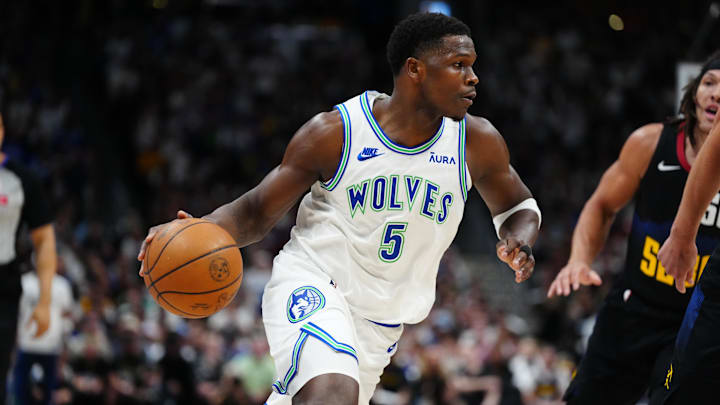In the long history of the NBA, there have been many specific trends that have consistently led to team success. A few that are extremely relevant to the Minnesota Timberwolves in 2024 are the importance of a team identity and a strong defensive mentality, both of which being areas the Wolves pass with flying colors.
Historically, it has also been necessary to have a front office willing and able to open up the checkbook to pay star players. Obviously, the best in the world are expected to be paid as such, and this is something that largely remains true today. No team is going to employ many of the league's top players without an extremely high payroll.
But recently, there has been a small but noticeable shift when it comes to how teambuilding and salary are connected in the NBA. The teams with the highest payroll are no longer consistently going deep into the postseason, and an emphasis on working smarter rather than harder in assembling a roster has been brought to the forefront of the NBA landscape.
This is evidenced by one very telling stat concerning the 2024 playoffs and player salaries. Out of the 15 players in the league that currently hold the highest annual salary, only one is still competing in the playoffs: Rudy Gobert.
Out of the top 15 player salaries in the NBA, only Rudy Gobert is still playing in the postseason. pic.twitter.com/LWrMkBkX4A
— Will Eudy (@WillCEudy) May 21, 2024
Rudy Gobert is the only top-15 salaried player left in the playoffs
It may seem a little far-fetched, but the Timberwolves' center is indeed the only player in the association making at least $41 million this year that is moving onto the conference finals. Truly, a new age is upon us. Gone are the days of ensuring a deep playoff run by simply signing big name after big name and letting the rest of the process fall by the wayside.
Now, teams like Denver last year and Minnesota this year are showing us that building a roster that works well together is becoming by far the most rewarding approach. The Phoenix Suns were one of the most recent examples of a team that tried to skip steps and simply sign two top-six salaried players. The result was of course them being thoroughly embarrassed in the opening round of the playoffs.
This trend truly has the potential to change the NBA landscape for good. With the new Collective Bargaining Agreement and new restrictions on teams that go too far over the financial limits, we may see star players opt to make more mature decisions in the how they conduct business, as well as organizations become more wise with which role players they opt to pay or trade for.
15 is not a small number in this scenario. The fact that Rudy is contributing in a big way for a Wolves team angling toward bringing home a championship while many of his richest NBA peers sit at home on the couch should be a major wake-up call. This is simply yet another domino falling as the league continues evolving and heading in a new direction.
